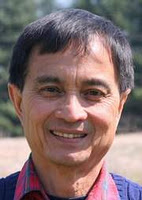I found this poem very interesting posted in camdisc composed by Davan Long. The poem reflects the present situation of Cambodia and link this reality to the past and the future. Read poem attached in pdf. below. I wish you have a great 2012.
Khmer Poem of Uwat Reas 2011-12-23 by Davan Long
Dear Compatriots,
As most of us living in the West, I left Cambodia in the 80’s and could hardly remember the last time I wrote something in Khmer. All my schooling and professional training over the past twenty five years were in either English or French. However, during my early childhood in Cambodia and refugee camps, I had great passion for reading and I read every Khmer books I could put my hands on – after all, there was nothing else to do in refugee camps.
A few months ago, at the height of the Boeung Kak protests against forced eviction, I exchanged my view with others on Facebook. Most people posted their comments in Khmer while I wrote mine in English. Interestingly, one poster labelled me as a foreigner because of my English writing, and said that a true Khmer person should write in Khmer when exchanging view with other fellow Khmers, especially with those in Cambodia. He was right, and I was embarrassed, if not ashamed, for not being at ease with my mother tongue language. Since then, I’ve spent some precious times to relearn Khmer. As part of the learning process, I decide to write a poem which I’d like to share with you all.

